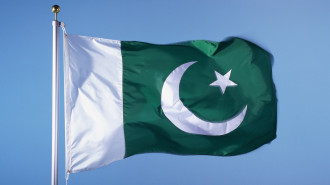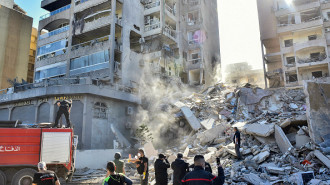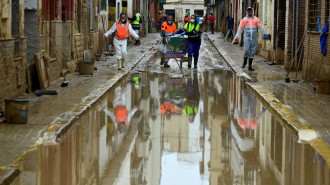Annual migrant deaths in Mediterranean fall by over a quarter: UNHCR
The number of migrants who arrived in Europe after surviving the sea crossing also dropped by roughly the same proportion last year to 113,482 after 172,301 in 2017, according to the UNHCR's full-year figures.
A total of 3,139 were reported dead or missing in 2017.
"The Mediterranean has been for years the most deadly sea crossing in the world for refugees and migrants," UNHCR spokeswoman Celine Schmitt told AFP in Paris.
The data also confirmed that Spain had become the main gateway into Europe for migrants and refugees who travel from north Africa, with 55,756 people registered as arriving there by sea in 2018.
Italy, under its hardline anti-immigration government, cut the number of arrivals dramatically last year to 23,371 - around a fifth of the number who arrived in 2017 when 119,369 crossed from Libya.
All of the figures are far down from their peak in 2015 when an estimated one million people crossed the Mediterranean to Europe, mostly from Turkey into Greece.
The effects of that influx continue to reverberate around the continent, sparking debate about immigration policies and fuelling far-right parties in countries that have welcomed large numbers of refugees, such as Italy, Germany and Sweden.
Rescue boats carrying migrants also sparked repeated flareups among European countries in 2018 after Italy's populist government closed its ports to charity-run ships which pick up stranded migrants.
The European Union has been working with north African countries, particularly conflict-wracked Libya, by offering aid money and help with border patrols in a bid to stem the flow of people.
The EU has also financed border protection and development projects in other impoverished African states that are a source of migrants or serve as transit routes.
The largest group of migrants who arrived in Europe in 2018 came from the west African state of Guinea (13,068) followed by Morocco (12,745) and Mali (10,327).
Syrians were the fourth biggest group (9,839), followed by Afghans (7,621) and Iraqis (7,333).
Follow us on Twitter: @The_NewArab
![mediterranean migrants [getty] mediterranean migrants [getty]](/sites/default/files/styles/large_16_9/public/media/images/5A0DFEF7-94D6-4367-B403-814AE79178BD.jpg?h=d1cb525d&itok=6Ap3nqaH)






 Follow the Middle East's top stories in English at The New Arab on Google News
Follow the Middle East's top stories in English at The New Arab on Google News


